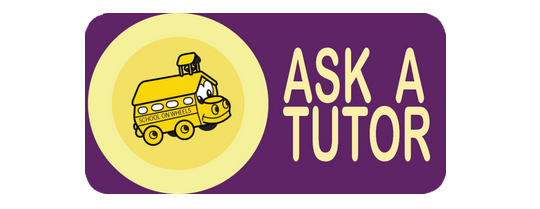Ask A Tutor Tuesday – 7/12/2016

Question: “I’ve found it very difficult to motivate my student over the summer. She doesn’t want to do the activities I bring because she says it’s not required–it’s not real homework. When we play a game or something she enjoys it but she doesn’t put any effort into the Academic Program worksheets. My student is 13, by the way. Any thoughts would be appreciated!”
You’re not alone! It can certainly be a challenge to motivate children over the summer, especially older students, who can be more skeptical. However, there are some steps you can take to ensure that you are maximizing the effectiveness of your sessions while also engaging your student’s interests.
- Plan your sessions with your student. Ask for her input. At 13, she probably has an idea of the areas she has difficulty with in school, and the two of you can decide together what to focus on over the summer to ensure she is ready for the next grade. Bring a calendar to your next session and plot out your remaining meeting dates, keeping short-term and long-term goals in mind. If your student knows she is working towards a definable outcome, she may be more motivated to participate.
- Incorporate student interests whenever possible. Use favorite song lyrics to discuss poetry, rhythm, and meter. Spend time reading your student’s favorite book series. Bring articles on sports or entertainment stars she is interested in. For math, try using real life examples. For instance, maybe she would like to save up to buy something that costs a lot of money. The two of you can work out how much she would need to save each week to purchase the item.
- Don’t rely on worksheets. While they are easy to prepare and definitely serve a purpose, worksheets can be dull for students, especially if that’s all you do during your sessions. Make sure you are incorporating other sorts of activities. You mention your student likes games–educational games can be a great resource over the summer. Try using an app from our digital learning database. Youtube is a great repository of informational and entertaining videos that can be used alongside more traditional methods.
If all else fails, ask your student to teach you something interesting she learned over the past school year. Having your student review notes and materials from the previous grade will keep the information fresh in her mind and has the added benefit of making your student feel empowered. And remember, don’t give up. The hour your spend with your student each week and the interest you show in her education will have a lasting impact, even if you can’t see it now.
About the tutor: Amanda Carr joined School on Wheels in early 2015. As engagement specialist at School on Wheels, she is dedicated to providing volunteers with resources to help them succeed. She has been tutoring her own School on Wheels student for 8 months.
Have a question for our Ask a Tutor feature?
Email askatutor [at] schoolonwheels.org or use the #AskATutor hashtag on any of our social media sites.
